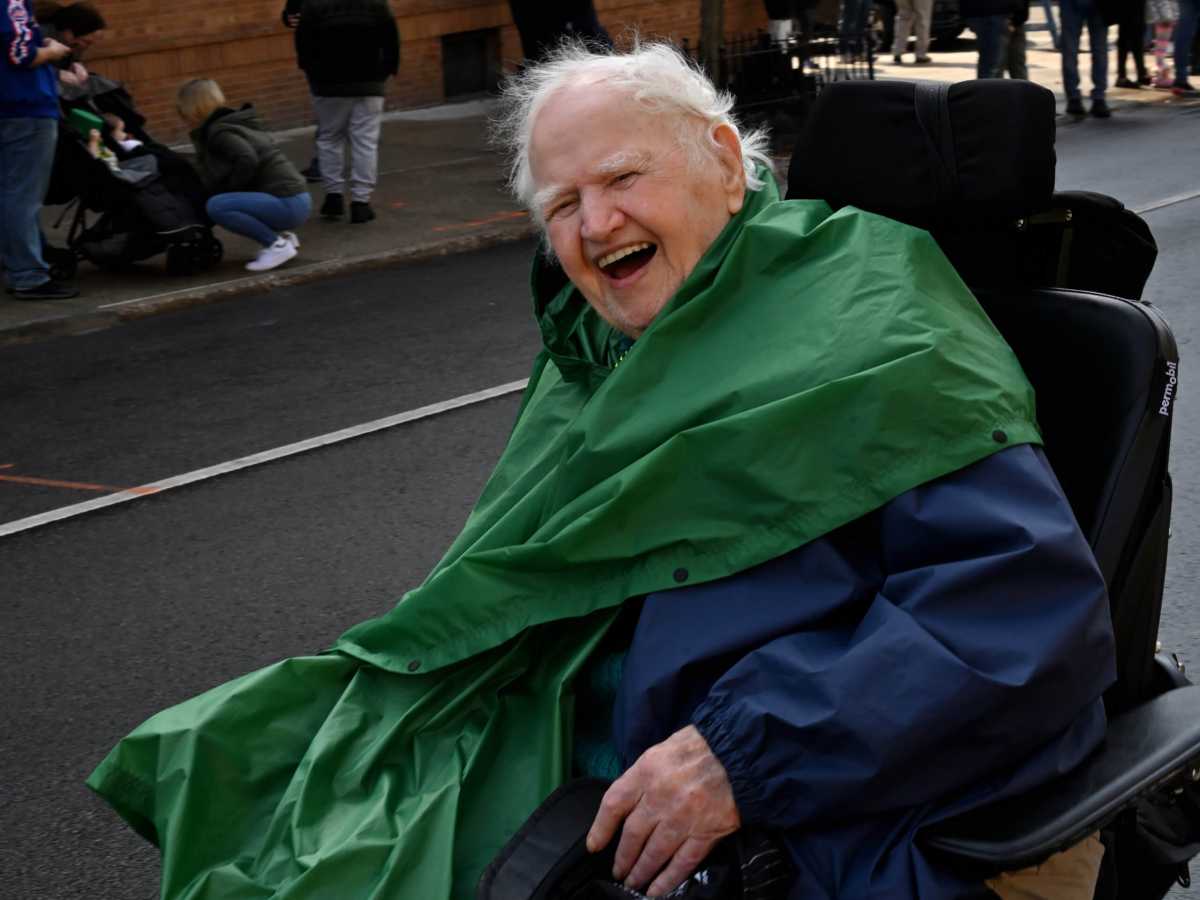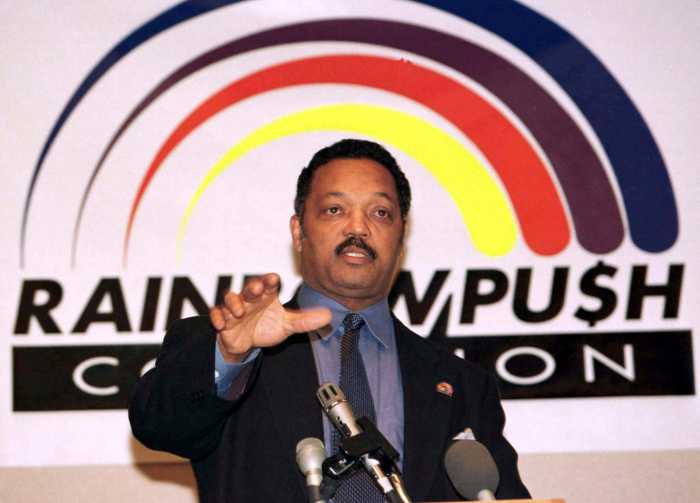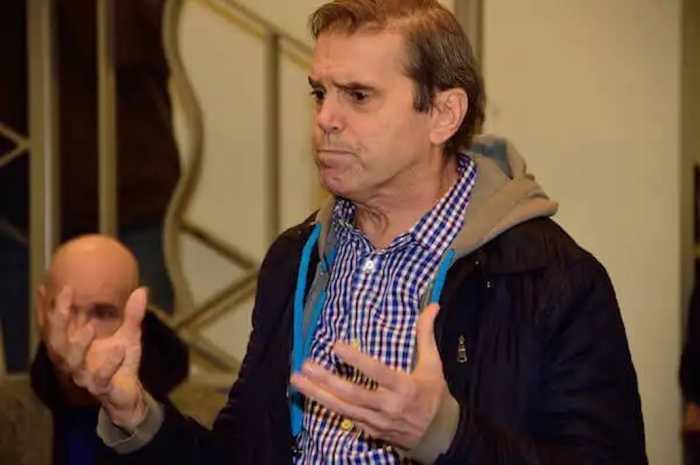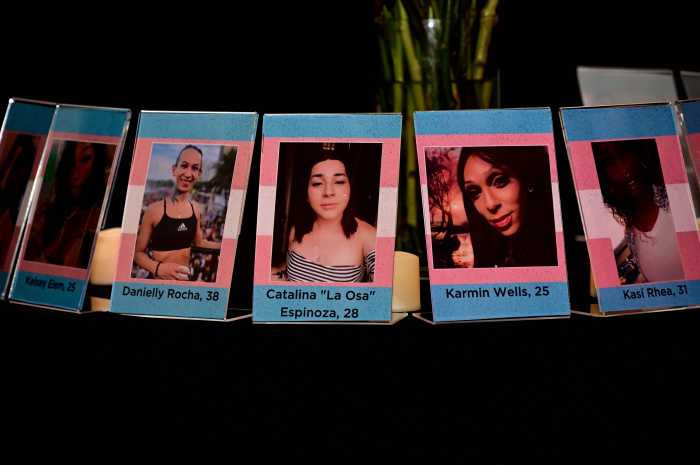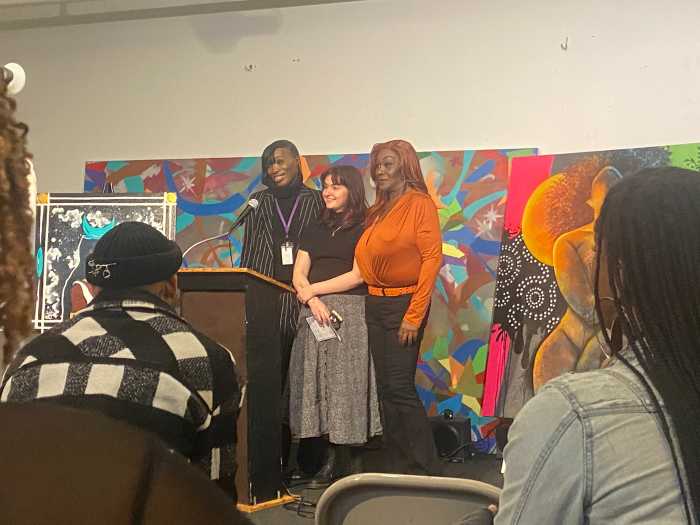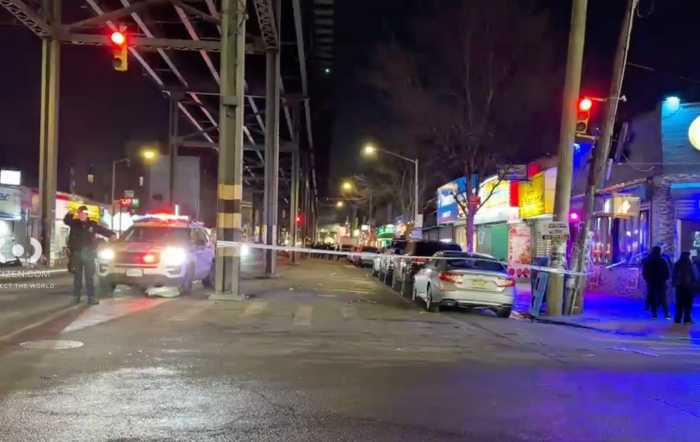Last year, St. Patrick’s Day was Malachy McCourt Day in the City of New York, declared so by a mayor for the second time, and McCourt spent it leading the Lavender & Green contingent of LGBTQ Irish and their allies in the Fifth Avenue St. Patrick’s Day Parade out front in his motorized wheelchair, in solidarity with the LGBTQ community, as always, and cheered on by wide swaths of the Irish community.
McCourt died on March 11, having survived an epic impoverished childhood in Brooklyn and Ireland, a struggle with alcohol that he gave up, he said, “for the sake of the wife and kidneys,” and six months in hospice care as he battled a slew of terminal conditions (to which he did not succumb and that got him thrown out of hospice in November 2022). As the title of his last book had it, “Death Need Not Be Fatal,” and Malachy McCourt will live in the hearts of all the friends, family, and comrades whose lives he touched in his 92 years as an author, raconteur, longshoreman, gold smuggler, saloon keeper, progressive activist, candidate for governor of the state of New York, and actor on stage, screen, and television.
The LGBTQ community — particularly the Irish LGBTQ community — never had a stauncher ally than Malachy McCourt. When the Irish Lesbian and Gay Organization was denied the chance to march with their banner in the 1991 St. Patrick’s Day Parade, he was called upon to participate in a television news debate on it alongside the late Irish gay activist Tarlach Mac Niallais and staunchly defended opening up the Fifth Avenue Parade. And when a St. Pat’s for All Parade was organized in Queens in 1999 to welcome all to march, including LGBTQ groups, McCourt “wrote an article and a check in support,” said Brendan Fay, one of the founders, “and was there each year” for the parade that kicked off in 2000. “He called his friends in the media” to cover it “and used his wide connections.”
McCourt’s connections in New York were deep and wide. Born in Brooklyn in 1931, his family moved back to Limerick when he was three. But in 1952 he followed his brother Frank back to New York where Malachy forged a storied career on television, radio, the movies, hospitality, letters, and politics. He played a bartender on the TV soap “Ryan’s Hope” and ran what is credited as the first single’s bar, the eponymous Malachy’s on the Upper East Side in 1958 that attracted everyone from Liz Taylor and Richard Burton to Jimmy Breslin. He defied an anti-sex work law that forbade women from sitting alone at the bar. And the single’s scene was born.
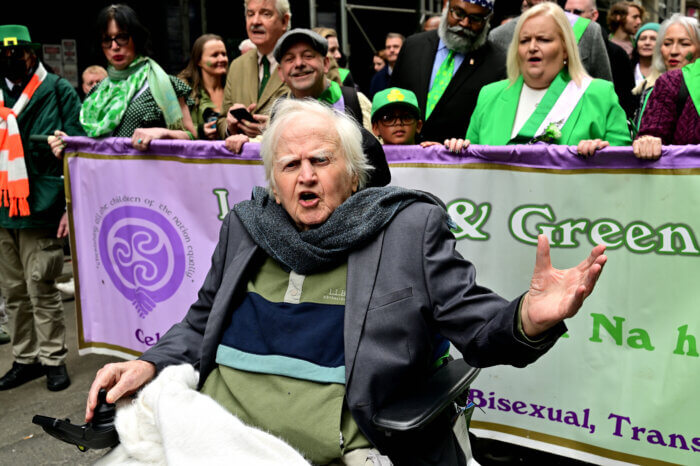
Brother Frank went from public school teacher to world famous memoirist with “Angela’s Ashes,” but Malachy wrote his own best-selling memoir, “A Monk Swimming,” in 1998 followed by “Singing my Him Song” in 2000. “Death Need Not be Fatal” came in 2017. He also taught memoir writing. (I took his wonderful workshop at Hunter last year.)
McCourt was a staunch progressive and his opposition to the Vietnam War got him in trouble while a radio talk show host on WMCA in the 1970s. He did a long stint after that on WBAI, for the last 10 years with John McDonagh who opened their “Radio Free Éireann” shows with Malachy singing “The Bells of Hell,” also the name of a bar McCourt ran that was the first to get the word “hell” in the phone book. (Ma Bell said that it was “a four-letter word” and blocked it until McCourt got the press on his side.) He also was a frequent guest on the old “Tonight” show on NBC when Jack Paar hosted.
Malachy’s son, Conor McCourt, said, “He taught me always to be kind — especially to people without power.” Conor made two documentaries about the four McCourt brothers — Frank, Malachy, Alphie, and Mike — “The McCourts of Limerick” and “The McCourts of New York” (both available on YouTube).
In the 2006 St. Pat’s for All Parade, Malachy was invited to be grand marshal and called Fay to say, “You get not just one McCourt. We are all showing up on Skillman Avenue!” Danny Dromm, an out former New York City Councilmember and co-founder of the parade, said they made all of them grand marshals. Dromm said that the irreverent Malachy held that “the only things you have to worry about in life are organized crime and organized religion.” Indeed, his daughter Siobhán said that on his deathbed at Lenox Hill her father was unable to speak, but when a priest came in “he let out a growl.” That said, McCourt was close with Fr. Pat Moloney, a fellow Limerick man known as “The Saint of the East Village,” and with Fr. Mychal Judge, “The Saint of 9/11,” who perished in that catastrophe. (He was briefly a bible salesman on Fire Island of all places, but quit: “You can’t sell a product you don’t believe in,” he said.)
Dromm is now the CFO of the St. Patrick’s Day Parade on Fifth Avenue, showing how far that committee has come after being protested from 1991-2015. This year’s parade on Fifth, without McCourt, had its sadness. And our contingent behind the Lavender & Green banner has dwindled from its height in 2016 when everyone from then-Mayor Bill de Blasio to the gay elected officials to most of the veterans of the fight for inclusion joined in. But Fay and his husband Tom Moulton are still carrying the banner, and Randy Wicker, 86, a gay activist since the late 1950s, was there in his wheelchair leading us on — the group warmly received by those on the sidelines, by Bishop Edmund Whalen at St. Patrick’s Cathedral, and by parade organizers in the reviewing stand. Times have changed in no small part due to Irish leaders such as McCourt and, of course, all the LGBTQ Irish activists who fought for inclusion.
De Blasio declared Malachy McCourt Day in 2020 and described him as “a living legend” who “believed in a society that included everyone and respected everyone.” In receiving the honor, McCourt said, “New York is a place of dreams and all the dreams of the McCourts have come true” here.
McCourt was once the Green Party candidate for Governor of New York under the slogan of “Don’t waste your vote. Give it to me!”
McCourt’s most famous refrain was, “Live every day as your last and one day you’ll be right!” His colleague at WBAI, David Rotherberg, 90, himself a gay activist since the early 1970s and famous for the Fortune Society for ex-offenders that he founded in 1967, said that McCourt “lightened the threat of death but didn’t account for the gap he would leave in his passing.”
Malachy McCourt is survived by his wife, Diana Galin, along with five children, nine grandchildren, one great-grandson and a legion of fans.

